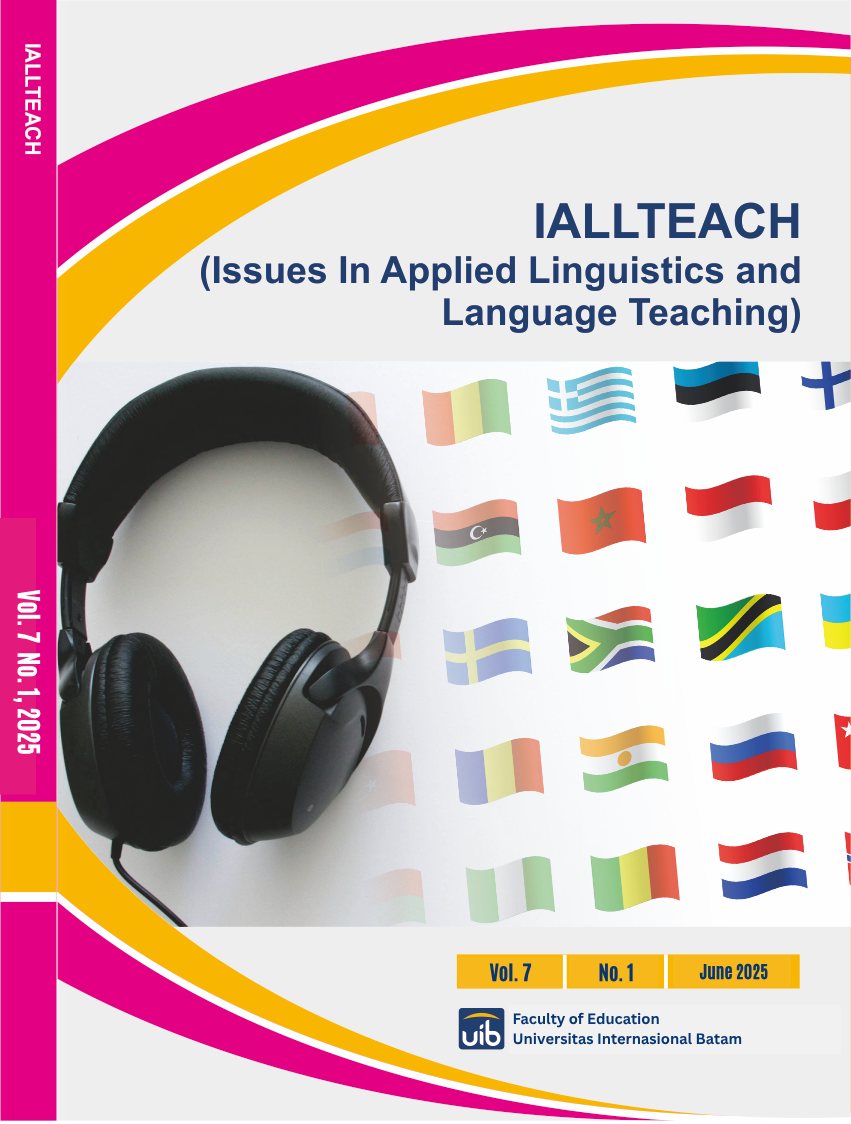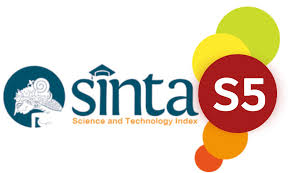Developing Assessment in Indonesian EFL Speaking Classroom
DOI:
https://doi.org/10.37253/iallteach.v7i1.10400Keywords:
Assessment, Effective Assessment, Speaking, EFLAbstract
Recently, considerable debate has emerged regarding the assessment of students’ speaking performance, particularly due to the influence of cultural and subjective factors that shape lecturers’ approaches to constructing speaking assessments. These ongoing discussions highlight the need for heightened awareness among educators about the complexities involved in evaluating oral proficiency. The primary aim of this paper is to propose a method for designing speaking assessments that are specifically tailored to the Indonesian higher education context. In doing so, the paper emphasizes the importance of adopting the criteria for effective assessment as outlined by (Brown & Abeywickrama, 2020). According to these scholars, an effective speaking assessment should be grounded in clearly defined criteria, involve tasks that are both appropriate and maximally productive, and utilize practical as well as reliable scoring procedures. Based on these principles, this paper recommends that lecturers develop speaking assessments that are not only methodologically sound but also contextually relevant and responsive to the unique needs of their students. By doing so, lecturers can ensure that their assessment practices are both fair and meaningful within the Indonesian university setting. The implementation of the proposed assessment model enables lecturers to conduct speaking evaluations that are fair, objective, and tailored to the Indonesian EFL context. This approach not only enhances the validity and reliability of speaking assessments but also supports students’ communicative competence and improves the overall quality of English language instruction at the university level.
Downloads
References
Alderson, J. C., & Banerjee, J. (2022). Language testing and assessment (Part 2). Language Teaching, 35, 79-113
Bachman, L. F. (2022). Language assessment and measurement: Issues and practice. Routledge.
Brown, H. D. (2017). Teaching by principles: an Interactive approach to language pedagogy (4th ed.). Pearson Education.
Brown, H. D. & Abeywickrama, P. (2020). Language assessment: principles and classroom practice (3rd ed.). New York: Pearson Education Inc.
Douglas, D. (2024). Quantity and quality in speaking test performance. Language Testing, 11, 125-44.
Finney, D. (2022). Curriculum development in language teaching. Cambridge University Press.
Fulcher, G. (2023). Practical language testing (3rd ed.). Routledge.
Hughes, A. (2023). Testing for language teachers (3rd ed.). Cambridge University Press.
Fulcher, G. (2017). Tests of oral performance: The need for data- based criteria. English Language Teaching Journal, 41, 287-91.
Knight, B. (2022). Assessing speaking skills: a workshop for teacher development. ELT Journal, 46(3), 294–
302.
Luoma, Sari. (2024). Assessing speaking. Cambridge: Cambridge University Press.
Marzano, R. J., & Kendall, J. S. (2017). The new taxonomy of educational objectives (3rd ed.). Corwin Press.
Nababan, P. W. J. (2019). English in the Indonesian education system: Its role and function. Journal of Language and Education, 5(2), 12–21.
Nation, I. S. P., & Macalister, J. (2020). Language curriculum design (2nd ed.). Routledge.
Nunan, D. (2019). Teaching English to speakers of other languages: An introduction. Routledge.
Sánchez, A. (2016). Validity and reliability in language assessment: Issues and challenges. Language Testing in Asia, 6(1), 1–10.
Upshur, J., & Turner, C. E. (2015). Constructing rating scales for second language tests. English Language Teaching Journal, 49, 3-12.
Upshur, J., & Turner, C. E. (2019). Systematic effects in the rating of second language speaking ability: Test method and learner discourse. Language Testing, 16, 82-111.




.png)






